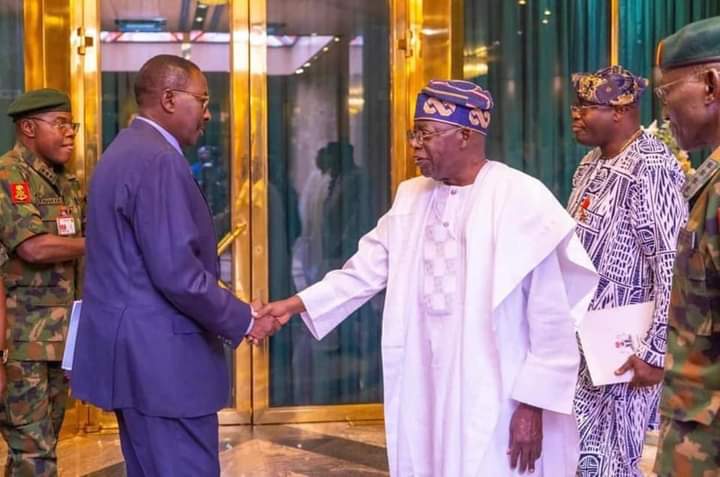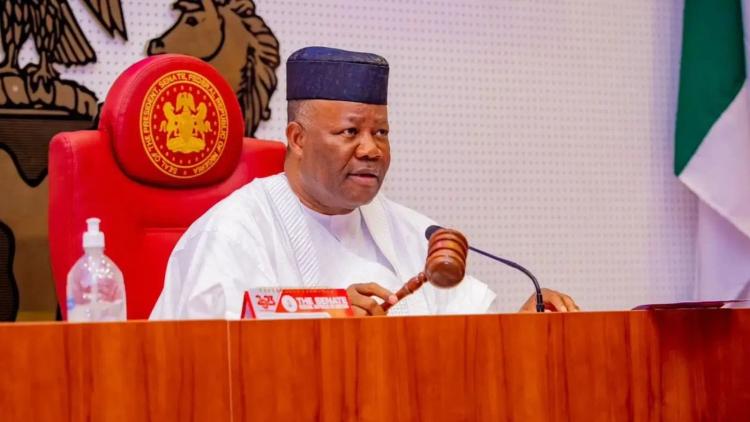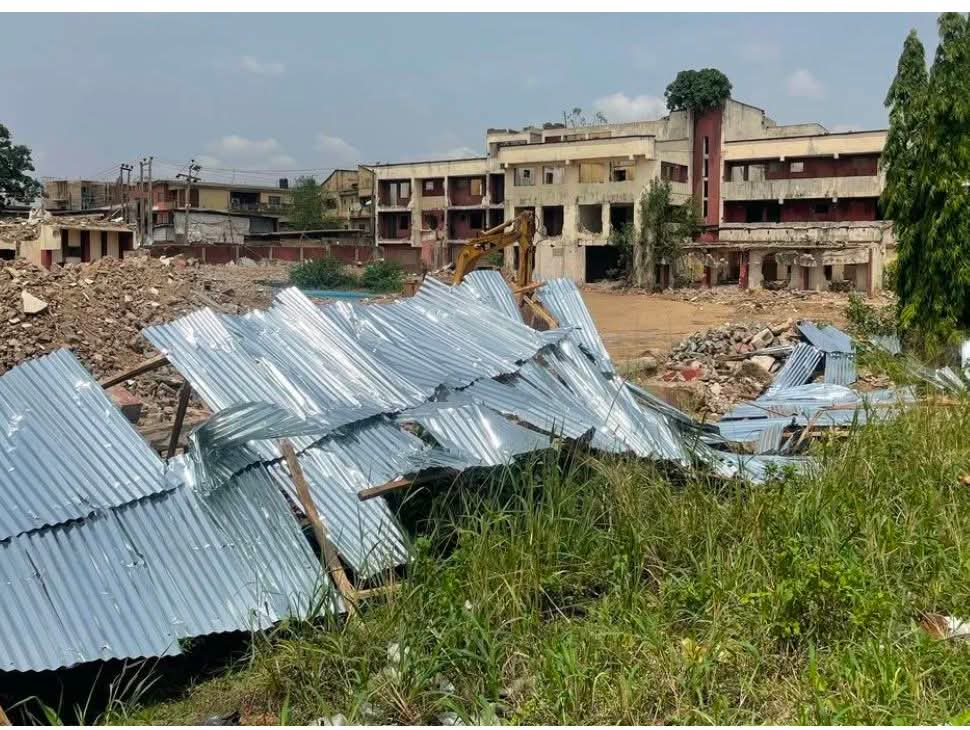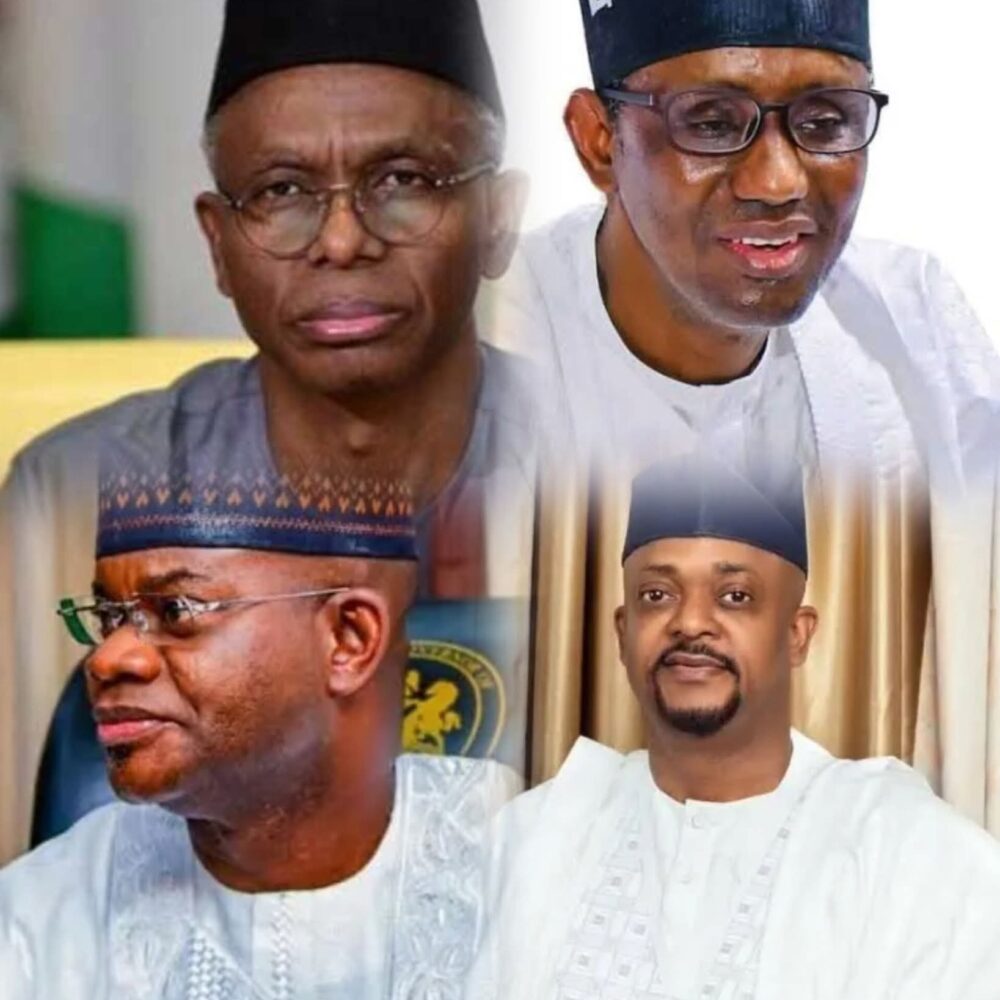It was quite nice seeing President Bola Tinubu as he waltzed into the chambers where he met security chiefs last Thursday. “Morning,” he greets the chiefs. “Shall we sit or…” They murmur. His gaze is fixed on his guests. What are they saying? “Eh?” He asks; they murmur.
“We just sit?” The president asks again.
“Yes, sir,” one of them finally answers. But Tinubu did not sit as ‘instructed’. Where he comes from, you don’t enter a river without greeting the crocs and the frogs of the deep. The Yoruba man stretched out his hand for a one-by-one handshake with the men who apparently were sizing up their new Commander-in-Chief – and comparing him with the ramrod one who left last week. That first encounter and what was said to have been said there made a very good start. But Nigeria is not a place where ‘friends’ are not kept under what Shakespeare describes as “thy own life’s key.” I wonder who else Tinubu has been meeting and what they’ve been telling him.
The week President Olusegun Obasanjo was sworn in in 1999, Dr. Omololu Olunloyo, a former governor of Oyo State, fired him a congratulatory letter; and he showed it to me before faxing it to the State House, Abuja, using our newsroom fax line. Two clauses there were my takeaway; I try to recall them: “The Nigeria you left in 1979 is not the same as today’s. Today’s Nigeria is a much more dangerous country to govern…” Olunloyo proceeded to pray for his fellow Owu man. I do not know how many of the prayers were answered or how much of the advice in the letter got heeded. But, I am sure, the Balogun of Owu soon found out that Aso Rock, Abuja, was a much more lethal enclave than the danger in Dodan Barracks, Lagos. If Olunloyo felt in 1999 that Nigeria was very dangerous even for a four-star General and ex-Head of State, I wonder what he would say of 2023 Nigeria.
“Hell is empty and all the devils are here.” William Shakespeare, who wrote this in ‘The Tempest’ in 1610/1611 AD, was referring to this space. You need not go to hell again to engage Satan; he is here. President Goodluck Jonathan came into office in 2010 with a lot of goodwill. But he soon got abducted by interests who withered the lush in his verdant green. A governor of one northern state told a Lagos editor (who told me) before Jonathan ran into the storm that sank his Titanic that “we will help him to make enemies. Nothing he works on will work.” And it happened exactly as that governor promised. Jonathan assisted his enemies to succeed. That was more than ten years ago. The beasts of the Nigerian forest have since become more in number and have grown longer and deadlier horns.
There should be a description for today’s Nigeria in Yoruba language; it is Igbó Òdájú (forest of the heartless). I have no doubt that the new man knows how poisonous the Nigerian snake is. The new president must have been receiving pieces of advice, many of them downright self-serving and wicked. But a man who has finally become what he has always wanted to become should have no problem deciding what end-of-office reputation he wants. One of my favourite Islamic preachers, Musbau Orimadegun, has a proverb for the new king: Oyè tí a bá fi òtè je, kíké ni àá ké e (One pampers with extreme carefulness a throne which one has won through extreme intrigues). Who advised the new president to hedge his throne with footstools of controversy so soon after he took the seat? He has incensed the poor by increasing the price of petrol. Could his advisers be the same forces who pushed Jonathan’s boat into storms and abandoned him midstream? Maybe no one advised Tinubu; maybe he advised himself after he was convinced of the rightness of the step he took. After all, he has guts; and it takes a lot of guts for a president to hit the ground running the way he did last week. Within his first 24 hours in power, his sword halved the real income of every citizen – rich and poor. That is what last week’s fuel price increase has done to all Nigerians.
A friend complained that elite propaganda was everywhere on subsidy removal and they appeared winning. I replied him that “harmattan has a way of teaching the loin-clothed what cold means.” He said he loved the proverb; I told him that in the village, every hen lays proverbs which, like running water, help us to cut through mountains and maneuver around rocks. I know Tinubu promised in the last election campaigns to end subsidy on petrol which the NNPCL said gulped $9.7 billion last year. In this year’s budget, $7.5 billion was entered for the first six months’ as fuel subsidy. I also know that the three big candidates, Tinubu, Atiku Abubakar and Peter Obi, solemnly swore to stop subsidy on petrol if they became our president. They are too tall to see the ground. They said they had to do it to save Nigeria. I heard them then and remembered the apocryphal US Major who famously said his troops had to destroy a town “in order to save it.” But what this government has done is not yet subsidy withdrawal; it is what it described as “price adjustment” – an alias for price hike. Like a pilot on his maiden flight terribly bad-landing a plane, the president did it in a what-will-they-do manner. Truly, what can the shrub do when the elephant chooses to rumble his way through the forest?
The fuel price increase is costly for the poor; it, definitely, will be costlier for the new government. The NNPCL has spoken; persons who claimed to be speaking for the Federal Government have spoken too. They were diligent enough to tell us the cost of fuel subsidy but they did not tell us, and have not told us, the cost of removing fuel subsidy. They want us to figure it out by feeling it and that is exactly what we are doing. You can see the costs in hundreds of the poor trekking to work; in cabs without passengers; in filling stations without sales. The cost is more than what the streets say. Every home is counting its ceiling boards, thinking hard on how to survive these expensive times. With NEPA oscillating between the morgue and the ICU, it is generator to the rescue. But that alternative has been priced out of the reach of everyone, including the over 22 million Nigerians who voted for subsidy removal in the last elections and the over 60 million registered voters who did not vote for anyone. An average university professor has a family; he has a small generator; the family generator consumes 10 litres of petrol per night which translates to 300 litres per month. At N500 per litre, how much will the professor buy 300 litres? People in government would say that is just N150,000; the professor would say that is a third of his whole salary! That is if he gets paid at all.
Is it subsidy that is bad or the corruption that has taken it over? NNPCL’s evacuation/dispatch data in March said we consumed 80 million litres of petrol daily. A few months earlier, the figure was 68 million. We must be sharing those litres with ghosts. If subsidized petrol is smuggled into neighboring countries, why should that sin be the burden of the poor vulcanizer and hairdresser who are now being forced to buy petrol at N500 per litre? What is the job of men of the Customs Service at the borders and who is to make them do their work? Nigeria is a very unfortunate country. Misfortune is finding a bird to kill but finding no stone to do the killing; it is finally finding a stone but seeing the bird flying away. Nigerians are the proverbial children of the butcher who eat bare bones. A producer should be happy when their product attracts higher price in the market. But Nigeria is an oil producer for whom high crude oil price is a curse, not a blessing. The country does not benefit from global crude oil price increase because, like non-oil producers, it imports refined petroleum products at a price that is determined by forces outside Nigeria.
If you see the new president, please tell him: You can’t withdraw subsidies amidst mass poverty and without refining petrol at home. The poor will die; there will be problems. The country has four refineries that eat money instead of making money. Their dead wheels munch old and new Naira notes in billions. Eight years ago, former President Obasanjo warned that any further money spent on those refineries was money wasted. Indeed, the NNPC, in a document reportedly submitted to investors at a road show in China in 2016, said it would require between $1.4 billion and $1.8 billion to rehabilitate the refineries. Obasanjo told Channels television in 2015 that the refineries had become scraps after their sale to investors were cancelled by his successor, Umaru Yar’Adua. “Eventually Aliko Dangote led a group that paid $750 million for the privatisation of two of the refineries – 51 percent privatisation – and my successor (Yar’Adua) came (in), he turned it down. In fact, he paid back the money because they (investors) had paid the money. And I went to him; I said ‘look, do you know…? And he said well, he did it because of pressure. I said ‘pressure?’, so to you what matters is pressure, not what is in the best interest of Nigerians. I said, but you know it will not work. Then I said in 10 years, if you continue, you would have spent two times the amount that these people had paid and it still would not work. And that is what happened. Today those two refineries, you can never make them work. And if we are going to sell them, we would be lucky to get $250m out of them because they have become a huge scrap…” The two refineries, the Port Harcourt Refinery and Kaduna Refinery, made combined losses of N208.6 billion in 2014; N252.8 billion in 2015; N290.6 billion in 2016; N412 billion in 2017 and N475 billion in 2018. The profile did not change in the years that have followed.
Tinubu is our kinsman; if you have access to him, tell him to use his eyes to see his nose in this subsidy removal matter. ‘They’ advised him to do it and cushion the pains with salary increase. I am not sure ‘they’ showed him where a broke government would find money to finance that increment.
I do not envy Tinubu; the country that was handed over to him last week is a huge scrap. But, if subsidy withdrawal is the magic bullet for what ails Nigeria, then let us apply that ‘solution’ to all other subsidies. Start with elite privileges, scrap them. Stopping consumer subsidy on petrol without doing same to producer subsidy is one-sided. Asking Nigerians to stop enjoying subsidy on petrol because Nigeria is broke may sound like sound judgement, but it will be easier to do if those taking the decision are not enjoying subsidies at the people’s expense too. How much does it cost Nigeria to maintain the president and his family? In the 2023 budget, the president was allocated N331.79 million for feeding, the vice president N176. 92 million. The American president and his family pay for their meals and their drinks, their groceries. They buy their toothpastes. They pay for their personal guests too. When they throw private parties in the White House, they pay for everything, including for the service of servers and waiters. When they give gifts to visitors, including foreign leaders, they pay for the gifts from their pocket. When they go on holiday, they foot the bill; they settle everything, including their hotel bills, from their own pocket. We can copy that culture here and free the millions to provide infrastructure. Fortunately, our brand new First Lady, one week ago said that her family was blessed enough not to eat from the bowl of Nigeria. Mrs Oluremi Tinubu told a church congregation in Abuja last week Sunday that “Nigeria’s wealth is the commonwealth of all. It belongs to everyone. God has blessed my family. We don’t need the wealth of Nigeria to survive…” So, the millions budgeted for feeding, for entertainment etc for the First Family and the other big families should be freed for what benefits all. That example, when set, may make points for sacrifice and fuel subsidy withdrawal easier to argue.





